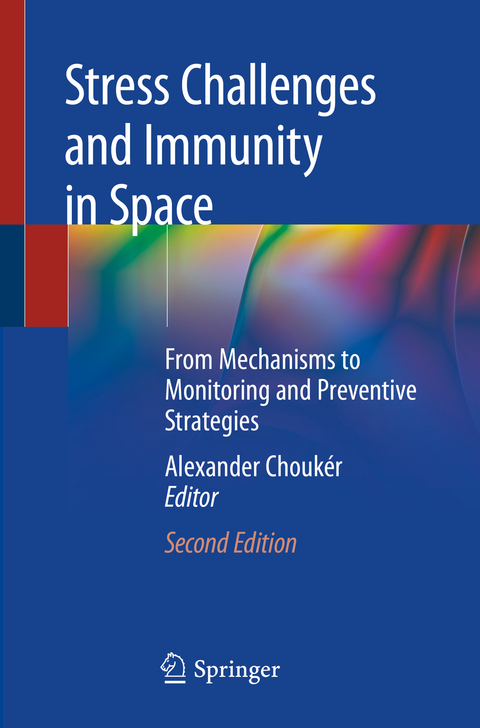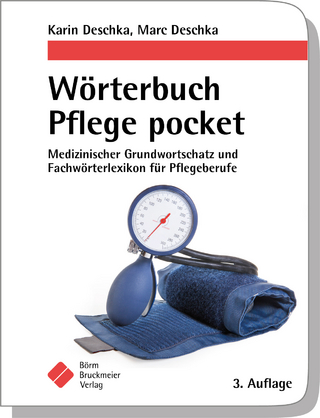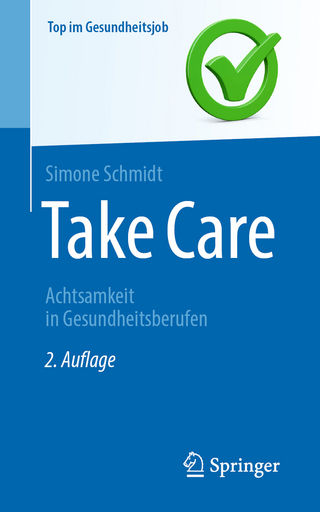
Stress Challenges and Immunity in Space
Springer International Publishing (Verlag)
978-3-030-16998-5 (ISBN)
This book explains how stress - either psychological or physical - can activate and/or paralyse human innate or adaptive immunity. Adequate immunity is crucial for maintaining health, both on Earth and in space. During space flight, human physiology is specifically challenged by complex environmental stressors, which are most pronounced during lunar or interplanetary missions. Adopting an interdisciplinary approach, the book identifies the impact of these stressors - the space exposome - on immunity as a result of (dys-)functions of specific cells, organs and organ networks. These conditions (e.g. gravitation changes, radiation, isolation/confinement) affect immunity, but at the same time provide insights that may help to prevent, diagnose and address immune-related health alterations. Written by experts from academia, space agencies and industry, the book is a valuable resource for professionals, researchers and students in the field of medicine, biology and technology.
The chapters "The Impact of Everyday Stressors on the Immune System and Health", "Stress and Radiation Responsiveness" and "Assessment of Radiosensitivity and Biomonitoring of Exposure to Space adiation" are available open access under a Creative Commons Attribution 4.0 International License via link.springer.com.
lt;p>Alexander Choukèr is Professor of Medicine and Academic Director at the Ludwig Maximilians University (LMU) in Munich, Germany and guest lecturer at King´s College, London, UK. He is clinical specialist in anesthesiology at the University Hospital where heads the "Stress and Immunity" research. He completed his medical and immunological training at the LMU and at the National Institutes of Allergy and Infectious Diseases (NIAID), Bethesda/USA, respectively. For more than two decades he has been actively involved in research on the International Space Station, in space analogue environments and been leading inter-disciplinary teams for translational and experimental research, including at the hospital. He is member of the European Space Sciences Committee (ESSC) and has been advisor or chairman at different expert boards of the European Space Agency´s (ESA). He is the chair of the ESA Topical Team on Stress and Immunology.
Part I Prelude.- 1 Space Travel: A Personal View from Above.- 2 Prelude: An integrative and up-dated view from the Scientists of the Topical Team "Stress and Immunity".- Part II "Stress and Immunity" - Research: A Link Between Space and Earth.- 3 What Is Stress?.- 4 The special relation of mitochondria, metabolism and stress.- 5 The Impact of Everyday Stressors on the Immune- System and Health.- Part III Stress and Immune Allostasis in Space, from Brain to Immune Responses.- 6 Neurobiological and Molecular Mechanisms of Stress and Glucocorticoid Effects on Learning and Memory: Implications for Stress Disorders on Earth and in Space.- 7 The Autonomic Nervous System.- 8 Circadian Rhythm and Stress.- 9 Endocannabinoids, "New-Old" Mediators of Stress Homeostasis.- 10 Immune System in Space: General Introduction and Observations on Stress-Sensitive Regulations.- 11 Innate Immunity Under Conditions of Space Flight.- 12 NK Cells Assessments: A Fourty-Year-Old History of Immune Stress Interaction in Space.- 13 Adaptive Immunity and Spaceflight.- 14 B-cell Immunology in Space.- 15 Stress, Hypoxia, and Immune Response.- 16 Gravitational Force: Triggered Stress in Cells of the Immune System.- 17 Microbial Stress: Spaceflight-induced Alterations in Microbial Virulence and Infectious Disease Risks for the Crew.- 18 Stress, Spaceflight, and Latent Herpes Virus Reactivation.- 19 Stress and Radiation-Immune-Responsiveness.- Part IV Preventive and Diagnostic Tool and Strategies.- 20 Considerations for Development and Application of Health Monitoring Tools in Space.- 21 Psychological Monitoring.- 22 Technology up-date for monitoring Autonomic Activity.- 23 Breath Gas Analysis.- 24 Monitoring the Microbial Burden in Manned Space Stations and Analogue environments.- 25 Monitoring of Body Core Temperature in Space.- 26 Flow Cytometry and cryopreservation Methods to Monitor Immune Dysregulation Associated with Spaceflight.- 27 Assessment of Radiosensitivity and Monitoringof Radiation-Induced Cellular Damage.- 28 Hair analyses - growing evidence.- Part V Therapeutic Strategies.- 29 Considerations for Preventive and Therapeutic Strategies.- 30 Psychological Countermeasures.- 31 Physical Countermeasures to Stress.- 32 Nutritional Countermeasures for Spaceflight-Related Stress.- 33 The Microbiome perspective: Immune - gut- axis modulation.- 34 Pharmacological Countermeasures to Spaceflight-Induced Alterations of the Immune System.- Part VI Perspectives for Manned Space Exploration - from Visions to Realities.- 35 Platforms for Stress and Immune Research in Preparation of Long-Duration Space Exploration Missions.- 36 MARS500 the first preparation of Long-Duration Space Exploration Missions - lessons learned for space exploration and health on Earth.- 37 On the ICE: Isolated, Confined and Extreme Environment.- 39 Moon, Mars and Beyond- the exploration roadmap and further visions.
| Erscheinungsdatum | 20.12.2020 |
|---|---|
| Zusatzinfo | XVI, 771 p. 137 illus., 112 illus. in color. |
| Verlagsort | Cham |
| Sprache | englisch |
| Maße | 155 x 235 mm |
| Gewicht | 1387 g |
| Themenwelt | Medizin / Pharmazie ► Allgemeines / Lexika |
| Schlagworte | Adaption • adaptive immunity • Health Monitoring • homeostasis • Immune physiology |
| ISBN-10 | 3-030-16998-7 / 3030169987 |
| ISBN-13 | 978-3-030-16998-5 / 9783030169985 |
| Zustand | Neuware |
| Haben Sie eine Frage zum Produkt? |
aus dem Bereich


